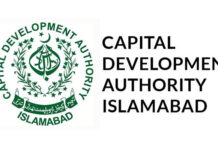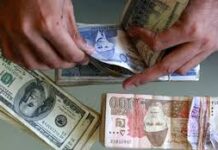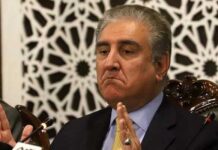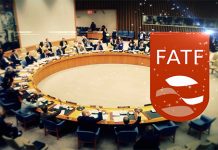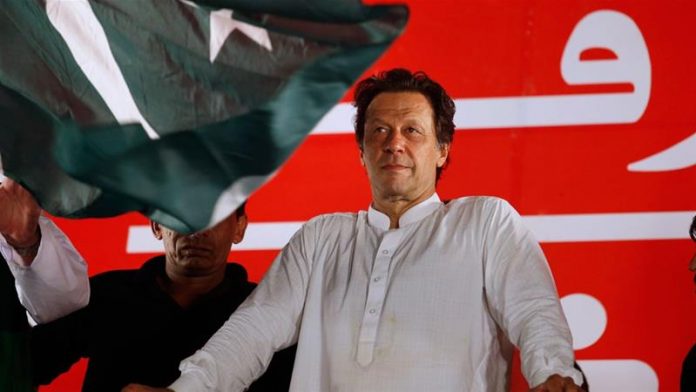
ISLAMABAD: Prime Minister Imran Khan Monday said the Pakistan Tehreek-e-Insaf’s (PTI) government had successfully set the future direction for the accomplishment of its economic and administrative policies under its 100 days agenda and its effects would be felt by the countrymen soon.
The prime minister assured the nation that the economic indicators of the country would flourish in the coming days, strengthening the rupee against US dollar, with diverse investment by the foreign investors.
During an interaction with a number of senior anchorpersons from different news channels, he maintained that plummeting of Pak rupee against US dollar was a temporary phase and adjustment done by the State Bank of Pakistan, which would be over soon.
There would be no shortage in the flow of dollars in the shape of foreign investment soon.
The reason could be attributed to the demand and supply of the dollar and the public speculations in the market which added to the rupee’s depreciation, he added.
He said the government was making efforts to make the institutions autonomous so that they could take their decisions strictly in accordance with laws and referred to the step taken by the SBP.
He said the government wanted that the institutions should be autonomous to deliver on their targets.
The step was also taken to secure the foreign exchange reserves of the country and control the fiscal deficit, whereas, the previous government invested 7 billion dollars to artificially keep the price of rupee afloat, he added.
The prime minister said the PTI government had inherited multi-dimensional challenges left behind by the previous regimes, including a massive fiscal deficit of 19 billion dollars.
He said due to the PTI government’s efforts for the economic turnaround, the increase in the exports and remittances through legal channels was being witnessed.
The foreign companies were eyeing huge investment in diverse fields, he said, referring to the investment of Exxon Mobil, Pepsi and Coca-Cola, besides upcoming Chinese investment.
The prime minister said China had attracted investment by creating export zones and the PTI government was emulating the same model in Pakistan.
He said the government was also tightening the noose around money launderers with strict laws as reportedly the money laundering volume from the country amounted to 10 billion dollars per annum.
The prime minister said the government was also tightening the noose around money launderers with strict legislation as reportedly the money laundering figures from the country per year had amounted to 10 billion dollars.
The government desired the media and the parliament to keep a check on the functioning and performance of the ministers so that they could be made accountable to the public.
The prime minister said his cabinet members had submitted their performance reports to him and he would take decisions after going through them.
Within 10 to 12 days, he would be in a position to inform the media about any decision on the reshuffling of the federal cabinet in the light of the performance reports, he added.
None of the previous government inherited such issues, including fiscal deficit, the prime minister said and defended the 100 days agenda of the PTI government, saying it would also focus to rid the countrymen of the elitist system whether in education, health, legal or jobs opportunities.
In the past, the system was an eschewed one for the poor segments of the society, he said, adding the reforms were being introduced in the government-run hospitals with the issuance of the health cards for the poor, besides, legislation being done for the provision of the legal assistance to them.
The prime minister to a query defended his proposal over poultry breed to counter poverty in the rural areas and referred to Bill Gates and the United States with a huge reliance on its production.
He said throughout the world the Halal meat trade volume touched 2,000 billion dollars per annum.
Imran Khan mentioned the multi-crises created by the previous rulers, saying all the institutions in the country were running in losses, including the Pakistan International Airlines and Railways. The former government left behind Rs 1,200 billion circular debt.
The PTI government would follow the models of Singapore and Malaysia by putting all the loss-making institutions under a holding company to improve their functioning, he added.
The prime minister said that he had never interfered in the functioning of institutions and cited the issue of his residence regularization by the Capital Development Authority (CDA). Such a thing had never happened in the past.
To another query, he replied he had neither interfered in Azam Swati’s issue nor in the JIT’s report and assured that the Supreme Court’s decision over the issue would be implemented.
About panic among the business community, Prime Minister Imran Khan said the PTI government had introduced ease of doing business policy in the country for the first time and assured one window operation facility for all the local and foreign investors.
“We are trying to create easiness for the business community and investors in Pakistan and hope we will succeed in our efforts,” he added.
He said after the 1970s, an anti-investors culture was introduced in the country and the de-industrialization policy had reversed all the things.
He said the Federal Board of Revenue had been bifurcated into two departments and its job would be just collection of tax while policy would be formulated by the ministries of finance and commerce.
About the go-slow policy of bureaucracy, the prime minister said anti-corruption programme was not his invention.
The nation would decide either “we should go with corruption or not”. Eradication of corruption was a must for the future of Pakistan, he added.
He said those bureaucrats, who were earning money from the corrupt system, were sabotaging the government’s initiatives and pursuing the go-slow policy. The bureaucrats, who were creating hurdles for the government, would be changed, he warned.
He said the government had inked agreements with 26 countries for the exchange of information about money laundering and the data it had received so far showed $11 billion accounts of various Pakistanis abroad.
The interesting thing, he said, was that the authorities in the UAE and Saudi Arabia were not providing information regarding the Aqama-holders.
It transpired as to why some people were Aqama holders of the two countries because they were involved in money laundering, he added.
He said an agreement with Switzerland had also been signed and now the government would get information about the bank accounts of Pakistanis from there.
And billions of dollars of the looted money were kept abroad and now the government was getting information in that regard.
The prime minister assured the media persons that there would be no problems of balance of payment to the country as dollars were pouring into Pakistan.
Dollars would pour into the country due to improvement in the governance system while the rest would come from the looted money, he added.
He said owing to the plundering of past governments, all the institutions were in losses while the country’s loans had reached Rs 30 trillion.
The prime minister said the government would be introducing the legal reforms, including the time frame of one and a half years for decisions in the civil cases, besides the whistleblower act, legal aid assistance for the poor and insertion of special legal provisions for the women and widows.
The political parties, which would oppose the legislation in that regard in the parliament, would expose themselves before the public, he added.
The prime minister said agreements were being reached with the foreign governments over money laundering issues and unearthing the stashing of illegal assets abroad.
He maintained that the government was prioritizing different issues, including the Rs 30 trillion debt burden and assured that they would make all those people accountable who had added to the economic woes.
All the corrupt elements would soon land in jails, he added.
To a question, he said the government did not immediately seek a bailout from the International Monetary Fund due to its tough conditions which could have increased poverty.
Instead, the government tried to manage it with the support of the friendly countries, said Khan.




